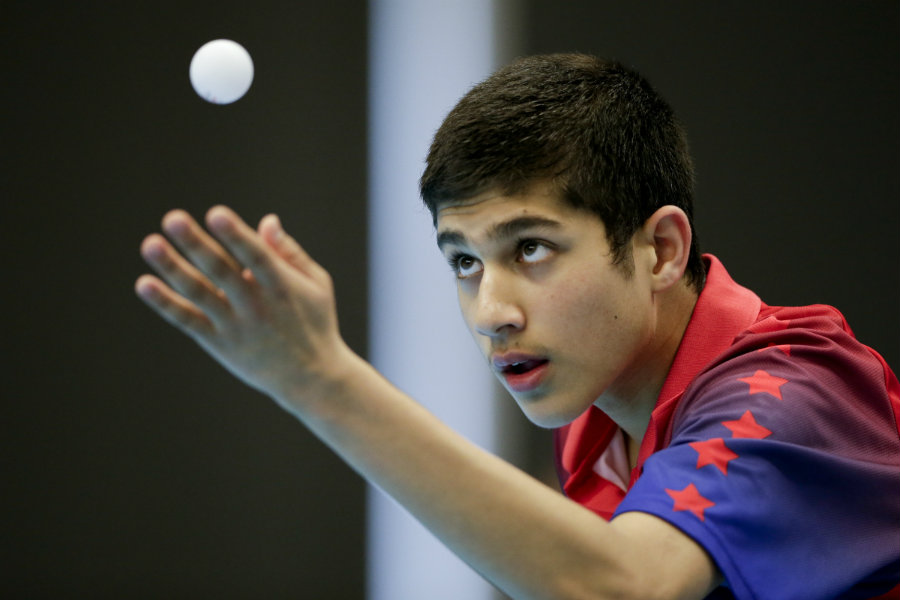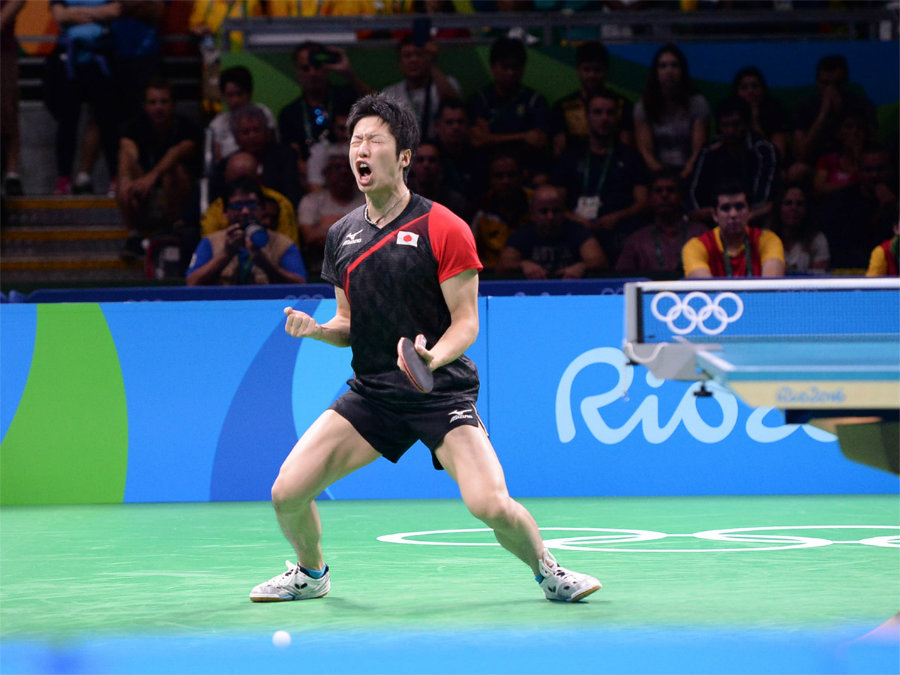Brazil – The first American born in the 21st Century to qualify for the Olympic Games, the 16-year-old star Table Tennis Player Kanak Jha will compete on Friday, August 12, at 19:30 PM Brasilia Time (UTC−3).
A natural at table tennis from an early age, since he first picked a paddle at the age of six, Jha first appeared in the spotlight when he entered the “all ages” category at the U.S. National Tournament in Las Vegas at 13 years old.

Jha finished with a 27-1 score, with only a single defeat at the hands of an opponent who doubled his age. He would get the gold in the under-15, under-18 and under-21 divisions. His reputation as a prodigy in the world of table tennis being built almost overnight.
The young Jha knew at that moment that he could do something great with his talents — but that required plenty of practice and preparation
“This sport requires a lot more than people think,” he says.
And it certainly does. Besides reflexes, core strength is a must. Jha is constantly doing his best to improve in this area, and still has a long way to go in many aspects — as shown in his early elimination in the men’s singles competition.
A young star
In order to accomplish what he wanted and refine his table tennis skills, Jha moved to Helmet, Sweden last year at the age of 15, to train with some of the best players and coaches in the world.
He lived with his older sister Prachi, who also is a skilled player and played with him in his childhood, in a tiny apartment. Jah would train in the morning and the afternoon, completing the assignments for his online school courses.
“Kanak is more mature than most 16 year-olds, and you see that in all the sacrifices he’s made. But he’s also still just a kid. He loves board games and joking around,” said his U.S. teammate, the veteran Timothy Wang.
Wang also comments on how Jha is bringing plenty of attention to the sport, and how he’ll help the sport grow and move forward thanks to his talents.
Results for the August 9th single players matches
Both the men’s and women’s quarterfinals took place last Tuesday, filled to the brim with action — plenty of players remain, looking forward to the Olympic Semifinals.
The United States had a hard time. Both contenders for a medal got knocked out before the quarterfinals. China, however, is going strong.

In the men’s quarterfinals, Zhang Jike (China) defeated Koki Niwa (Japan) four against one. Vladimir Samsonov (Belarus) claims victory against the winner of the bronze medal back at the 2012 London Olympics: the German Dimitrij Ovtcharov.
Similarly to his teammate, Ma Long (China) defeats Quadri Aruna four against zero. Finally, Jun Mizutani (Japan) defeats Marcos Freitas (Portugal) and advances.
In the women’s quarterfinals, Ding Ning, Li Xiaoxia and Ai Fukuhara (the first two from China, the latter from Japan) defeated their opponents four against zero; Kim Song I (North Korea) also advanced, following six games.
Table Tennis competition paradox
Turns out the biggest event in the world of Table Tennis, the Olympics, is one of the easiest.
Dimitrij Ovtcharov, bronze medallist in London and number 5 German player, has noted that the World Championship is much tougher to win than the Olympic event itself. It’s easier to become a prestigious Olympic champion and have such corresponding title instead of a World Champion.
This peculiar situation can be attributed to the dominance of the Chinese in the sport; to prevent China from utterly dominating the game and killing big interest, nations that participate in the Olympics only have two entries in Men’s and Women’s singles each.
This strategy gives other countries a chance at getting a very desirable medal. It helps at keeping players that are, perhaps, too good out of the field.
It’s not too good for these mostly Asian and European players (and it’s most difficult for China), but it’s better for everyone else, since there aren’t a lot of strong players to deal with.
There are somewhat mixed opinions whenever or not this whole deal is a good thing, but the table tennis officials defend their decision: other sports have similar restrictions, and other countries dominate other sports.
Thomas Weikert, president of the International Table Tennis Federation, said that the Olympics are not only for the best players and that other countries have to have a medal chance.
Of course, competition is still fierce, and especially so at the later rounds; but with only two players per nation, it tends to be easier for those who make it into their national teams.
Table Tennis autograph wrangler
The Olympics, like any significant event, has plenty of people who work hard behind the scenes to make sure it keeps running smoothly. Even if it’s a less than a glamorous task, or something that is not seen as crucial.
For example, there are the scuba diving fellows who retrieve swimmer’s earrings from the bottom of the pools.
Regarding table tennis, there are the people who make sure the winning players take the time to do a very important task: autograph their ping-pong balls and encourage them to toss them into the audience.
It may sound unimportant, but it’s one of those little, odd sporting traditions that exist — regular field table tennis also has people with the particular job of reminding players to sign their table tennis balls and give them to the awaiting audience.
Sources: Bleacher Report
